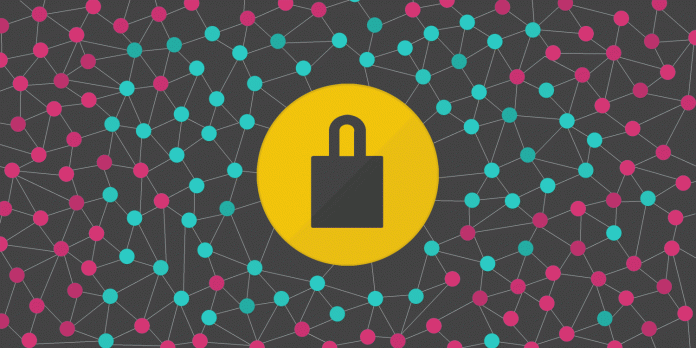
There is also plenty of good reasons to invest in Litecoin. The token was developed to provide features Bitcoin doesn’t offer and because the price is accessible to ordinary investors is an attractive option.
Litecoin has already shown good form in the past. The tokens are also four times more abundant than Bitcoin and have low transaction overheads.
When you invest in Litecoin, you have two options; store your tokens in a cryptocurrency exchange or keep them in a digital wallet under your supervision.
The latter option is the most secure way, particularly in light of centralised exchanges being hacked. Hence in this article, we will discuss the best cryptocurrency wallets for Litecoin.
Cryptocurrency Wallets – Quick Recap

Digital wallets for Litecoins use software programs that contain private and public keys. These offer you more protection than an exchange, but you are personally responsible for keeping the keys safe.
The advantages of digital wallets are you can use cryptocurrencies to trade for goods and manage your crypto finances directly from your wallet.
Cryptocurrency wallets are easy to use, and worth the investment.
The best way to describe the functionality of cryptocurrency wallets is a comparison with emails; you send and receive Litecoins. The ‘email address’ however is replaced with a public key you acquire from the person you are sending the transaction to – or if you are receiving funds, you give the sender your public key.
When choosing an appropriate wallet, it’s pertinent to select a reliable and trusted company. There have been incidents of Bitcoin scams offering false wallets.
You should also consider the type of wallet you prefer. There are several types; hardware wallets, desktop, mobile, cloud and paper.
Cryptocurrency accounts are vulnerable. Hardware wallets provide investors with the most security, and if safety is your number one priority, opt for a hardware wallet.
There are costs involved, but digital wallets for cryptocurrencies are not expensive – at the time of writing you can expect to pay around €100. It’s a small price to pay compared to the value of Litecoins it is holding.
Litecoin Hardware Cryptocurrency Wallets

Hardware wallets offer the best security because they are removable and plug into the USB portal of your computer or mobile phone.
They are only accessible online when plugged into your computer. This dramatically reduces the chances of cybercriminals stealing your private key.
There are only two threats to investors using a hardware wallet.
Firstly, if your computer or mobile gets infected with malicious malware which gives cybercriminals access to the data on your wallet when you plug it into your computer.
Secondly, there is always a risk of losing hardware wallets because they are only as big as a USB. This second issue is on you though.
If you are the forgetful type and have a history of ‘misplacing’ things, opt for a hardware wallet that has a backup memory that enables you to recover your private key or keep a paper wallet, so you don’t lose your private or public key.
* It’s important to note, that if you do not have your public key and have not backed up your wallet to retrieve a blocked account, you will lose whatever Litecoins you have in your account.
There is the same principle that applies to cryptocurrency wallets as it does to regular money handling. You just have to be careful.
Ledger Nano S
The most popular hardware wallet that supports Litecoin is the Ledger Nano S. Prices start at €84, but if you want peace of mind, the device is worth shelling out for.
Other advantages are the Ledger Nano S can store multiple currencies which makes it convenient to buy and sell other coins.
A neat feature of the Nano S is the design. It appears like a USB but has additional security measures specifically for cryptocurrencies. This means private, and public keys are stored offline so cannot be breached by cybercriminals.
The device is password protected, so if you were to lose the USB, nobody could access the data unless they know your login details.
The device also has a built-in OLED which enables you to track and manage your account at a glance. You can also create a pin code which prevents other people from accessing your data and also allows you to recover funds if the device becomes corrupted.
For more details, visit our Ledger Nano S review.
TREZOR
Issues surrounding the security of cryptocurrencies prompted the invention of TREZOR – the first official digital wallet to be launched on the market.
Since then TREZOR has proven its worth and earned a solid reputation as a trusted and reliable digital wallet. Trezor wallet starts from €89.
Regarding portability, TREZOR is small enough to take with you, but not nano small that it becomes easy to lose. Trezor fits into the palm of your hand, slips into your pocket or purse and plugs into your computer, tablet or smartphone through the USB port.
The device’s stand-out feature is the security measures which protect your crypto-assets from online and offline theft. Like rival hardware wallets, private keys are stored on the device, and you have to create a 4-digit pin code to access information.
Security on the TREZOR goes one step further. You have the option to set up a password manager in the form of two-way authentication like Google, WordPress and other digital accounts offer.
If the device is stolen, therefore, the culprits would still not be able to access your account unless they also have your phone.
Trezor also has a 24-word recovery seed in case you lose your device or it gets lost. It is advisable to create the recovery seed when you first set the wallet on a device but is easy to reset if you need to set it up on a new device. It is vitally important that you do not lose your recovery seed. If you do, you will also lose your Litecoins.
For more detailed information, read our TREZOR Review.
KeepKey
KeepKey may not be as popular as the two hardware wallets mentioned above, but the company is taking promising measures to make the device more appealing to crypto investors.
A slashed price tag and a slick design is as right a place to start as any. When the device was initially launched, it cost €192. Today, you can pick KeepKey wallet up for €105.
The sleek, black design is indeed more eye-catching than the plastic Trezor and with a large OLED screen the Ledger Nano S, it’s easier to read the digital details of your account status. For customers with depreciating eyesight, this feature serves up a significant plus.
In keeping with its rivals, KeepKey supports multiple digital currencies and since being acquired by ShapeShift – one of the leading crypto exchanges – users have access to various cryptocurrencies directly from your wallet without having to go through an exchange.
The advanced security features also fall in line with other hardware wallets. Nobody can access the device without entering the four digit-pin, and the box containing your KeepKey private code is security sealed so you can be assured it’s not been tampered with before you use it.
KeepKey operates with open-source firmware so the community of developers would expose security loopholes or attempts to steal private keys.
The wallet also has a neat little feature called ‘vault’ which enables you to lock in your balance for a set amount of time – ideal for long-term gifts or if you’re not good at saving money.
You can find more details in our KeepKey Review.
Litecoin Desktop Cryptocurrency Wallets

If the cost deters you from investing in a hardware wallet, the next best option is a desktop wallet.
Most are free, but there are some that still carry a charge to use for various transactions. These type of wallets offer more convenience and are more secure than a web wallet or mobile wallet which are more susceptible to hackers.
Before opting for a desktop wallet, pay attention to the fine print and take stock of payable fees.
Also, make sure the wallet supports Litecoin because not many of them are compatible with LTC. We have listed what we feel are the top three best desktop wallets for storing Litecoin below:
Exodus
Professional traders in the crypto-space use Exodus. This doesn’t necessarily mean its the best cryptocurrency wallet for Litecoins, but it does have some attractive features that make trading convenient and is built by a trusted company that has taken significant steps to tighten security measures.
The appeal for professionals is that Exodus is one of the few desktop wallets that have a built-in exchange tool powered by ShapeShift which makes trading between coins much more comfortable and quicker.
The exchange platform works for all eight coins Exodus supports – including Litecoin – and prices are adjusted in real-time.
Exodus is equally amiable to cryptocurrency newcomers thanks to its slick interface.
Navigation around the wallet is intuitive, although non-tech users may be a little overwhelmed by the amount of market information in the various charts at first glance. Once you get used to them, you will find they are a useful asset that aids your trading activities.
Another plus point for the Exodus tickbox is that security measures have not been compromised.
Users can set up the passwords and passphrases like any other software and the wallet also come with a one-click recovery system and 12-word recovery phrase. As mentioned earlier, however, desktop wallets are more susceptible to cybercriminals.
Jaxx
Another high-quality desktop that is available for free is Jaxx.
In truth, there is not much to choose between Jaxx and Exodus other than Jaxx supports 13 cryptocurrencies and Exodus only has eight. For most investors, and even part-time traders dabbling in cryptos, the difference is hardly significant.
Security features include password set up and the 12-word backup seed, so you don’t lose your private keys and get frozen out of your account. Make sure to keep the backup seed in a safe place.
The other standout feature that sets Jaxx apart from its competitors is that you can also switch it to your iOS mobile device and use the wallet from anywhere.
To date, there are no negative aspects to using Jaxx, but the software is only two years old so is still building a reputation.
Furthermore, if hackers are trying to steal cryptocurrencies, they are mostly targeting exchanges other than the usual malware scams. If you take the usual precautions to protect your details and install anti-virus software, desktop wallets like Jaxx are safe enough to use.
Litecoin Core
Litecoin Core is the official digital wallet and is managed by the Litecoin development team.
The wallet syncs with the entire blockchain so take several days to download to your hard drive, but once you’re over the initial hurdle, you get all the advantage of Litecoin technology including enabling your computer to act as a node.
If you’re new to cryptocurrencies and the concepts of nodes, every computer that is connected to the blockchain with appropriate software installed – like the Litecoin Core wallet – contributes to “mining” Litecoins whereby you can earn little extra money for lending power to the community.
Miners are awarded 25 Litecoins for every blockchain that is created. Litecoin Core wallet holders will only receive a fraction of that, but there are 84 million litecoins to mine so early adopters can expect to get a share of the spoils even if they don’t make you millions.
LTC wallets are encrypted with the usual password and username security checks, but users can view accounts without logging in. Only transactions require user security details. The security wall also helps to prevent viruses and trojans accessing your private key and stealing your coins.
Conclusion
 In our experience, the best cryptocurrency wallet for Litecoin is the Ledger Nano S.
In our experience, the best cryptocurrency wallet for Litecoin is the Ledger Nano S.
We don’t have any affiliation with the company that produces the Ledger Nano S; it’s just our opinion. It offers excellent security features, and it’s also the most affordable cryptocurrency wallet on the market.
If you have any other suggestions, we would love to hear from you, so feel free to leave a comment below!



![Bitcoin Buyer Review of Official Website [2022] bitcoin buyer review featured image](https://bitemycoin.com/wp-content/uploads/2022/04/bitcoin-buyer-review-featured-218x150.jpg)
![Bitcoin Digital | Official Website Review [2022] bitcoin digital review featured](https://bitemycoin.com/wp-content/uploads/2022/04/bitcoin-digital-featured-218x150.jpg)



